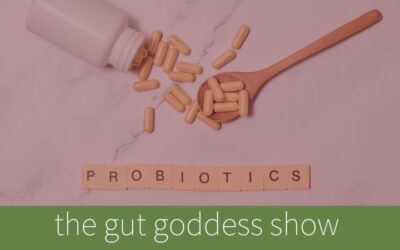I thought it was time to share more thoughts on one of man’s best friends (I think it tops dogs to be honest), meat.
In my last post I talked about why the quality of meat is an important factor, that not all meats are created equal. Some come from unhappy, toxic, antibiotic-filled animals who are being fed unnatural things, whilst other meat is from happy animals who have seen the sun and are able to walk. It’s like the difference between white lightening (plastic bottle cheap cider) and a 20-year single malt whiskey, both alcohol by name but totally different in quality, taste and experience.
If you haven’t noticed, meat seems to get a pretty bad press, we are constantly told to reduce our red meat intake, use lean cuts of meat and that it can contribute to high cholesterol and other health problems.
Is this really the case?
No, I personally don’t think it is. I think if you bear in mind the quality of the meat, it is actually beneficial to your health. Here is why you should grab yourself an organic/grass-fed steak this evening:
1. Meat Does Not Increase Your (Bad) Cholesterol
The government line is to reduce meat to lower cholesterol as it is high in saturated fats – the fats that are thought to clog your arteries and give you heart disease/attacks. Sally Fallon from Nourishing Traditions nails this big subject on the head in a very thorough way but here is some evidence in brief.
Before 1920 coronary heart disease was rare in America, so much so that when a young guy invented the first electrocardiogram machine all his colleagues at Harvard University told him to focus on something that would prove more profitable! Since that time heart disease has become one of the biggest killers with 1 in 5 men and 1 in 8 women dying of the disease in the UK. 1
What is the difference in our diet then since the 1920 or earlier? Did our ancestors live on a vegetarian/vegan diet? No, their diet actually consisted of lots of animal fats, from lard, butter, meat, broth etc. But what is interesting is the foods that were not present in their diet: margarine, corn oil, vegetable oil, white flour, fructose/dextrose/refined sugar (obviously they had some but not like we do today). My grandma used to fry everything in lard and ate plenty of cream and butter. The amount of traditional animal fats in our diets has actually decreased and at the same time health problems like diabetes, heart disease, cancer are increasing – interesting.
Grass-fed beef has a high amount of omega 3 fatty acids available – which are essential for our cells to work properly, assist the brain (which is made up mostly of saturated fat) and actually help lower the bad HDL cholesterol by providing the good LDL cholesterol to bring the much needed balance (having high cholesterol is not ‘bad’ if you have an even balance of both HDL and LDL as they keep each other in check).
There have also been countless studies done on the of eating a traditional, high saturated fat diet on those suffering with high cholesterol which has then been all bunched together in another study to basically conclude that there is no evidence to say saturated fats cause heart disease – read it here.
Again, this is a massive topic as we are looking at the issue of saturated fats and going against the common publicised thought that they are evil. I will write a more in depth post at another point, but its safe to say that I (and others) think eating quality meat in a traditional diet is not going to raise your cholesterol. However eating refined sugars, flours and lots of hydrogenated vegetables oil will.
2. We Need to Eat Meat
I have heard this a few times from vegetarians and vegans and I can understand their point, we have an abundance of foods available to us, nuts for protein, vegetable oils for omega’s, so meat is just unnecessary.
I definitely used to be of this inclination and I ate pretty much like a vegetarian for several years due to a low budget and thinking it was probably healthier. Now I eat meat products (including broth or fat) at least once a day.
Why?
Proteins are the building blocks of life and made up of chains of amino acids (and carbon, hydrogen, nitrogen, oxygen and usually sulphur). Our bodies need them to form organs, nerves, muscle and flesh. Proteins are made up of 20 amino acids, 10 of which our bodies can produce and the other 10 must be supplied by the food we eat. We need these amino acids every day otherwise our bodies are working out of lack and deficiency. Proteins enable the body to grow, produce hormones, enable blood clotting and balancing the acid-alkaline content of blood and tissues.
What’s the point? Animal protein is our only source of complete protein and of Vitamin A and D. Proteins from the vegetable kingdom are incomplete, meaning they are low in one or more essential amino acids, even if they are high in others.
Historically humans ate mainly meat and fat with additional vegetable products, and studies show that, historically, people who had a low animal protein diet were detectable through the notable increase of abscesses, cavities and bone problems in their teeth. Dr Western A Price has looked at many ‘primitive’ people-groups and found that there diets and lives were far healthier than our modern ‘low fat vegetarian’ diets. Research done into these so-called ‘Blue Zones’ (areas of the world where people live – fully, actively and healthily – to be over 100!) that most of these people groups consume good quality meat/fish and fats.
Also the proteins and vegetables found in meat are more available for the body, and are easier to digest, which is why people like Dr Natasha Campbell-Mcbride recommend even those with Crohn’s or other digestive diseases to eat diets high in meat and fat, as they help to heal and rebuild the damaged areas of the gut and health.
3. Eating Meat is Not Bad for the Environment
Now firstly, I am no expert on this area but I will share with you what I have learned so far.
The general argument is that keeping cows to produce beef means we are cutting down rainforests/causing desertification (our land turning into desert) and releases toxic gases into the air.
Addressing Green House Gases
Chris Keller wrote wonderfully on the topic about how what we have heard about cows being a major contributor to green house gasses:
A commonly cited statistic is that cows produce more greenhouse gases than all the world’s transportation combined, or 18% of all greenhouse …However, even the revised figure doesn’t take into account that grazing livestock can actually help remove carbon from the atmosphere. (2) Grasslands are capable of sequestering more carbon than any other ecosystem, and livestock can enhance the incorporation of carbon into the plants and soil. (3) One study showed that grazing cattle can also reduce the land’s natural emissions of nitrous oxide, a greenhouse gas that environmentalists agree is more damaging than carbon dioxide.
Addressing Desertification
The next issue people have is that our increasing demand for meat means we are contributing to the desertification – our land becoming desert/barren/useless. Climatologists see desertification as one of the biggest threats to our planet, as our dry lands are becoming increasingly degraded and barren. This has a massive impact on our food production and therefore world food supply. This whole topic has caused much confusion, as many of these desert lands do receive rain but they are unable to retain it as it just evaporates off. Many people blame cattle for eating all the plants and that they are the cause of this degradation of our world’s land.
I will not say much on this as someone else has already explained it so wonderfully, so if you are interested listen to the short TEDX talk by expert Allam Savoy at the bottom of the page and you can see what our planet really needs to stay healthy.
So I hope this has put your mind at ease when it comes to eating grass-fed organic meat. When you consume your homemade organic meatballs you can rest assured that you are giving your body all the amino acids and saturated fats it need to combat cholesterol, grow and produce hormones, look after our planet and generally increase your strength and health in a natural way.
Did you used to be a vegetarian now turned meat eater? Let me know what you think.






0 Comments
Trackbacks/Pingbacks